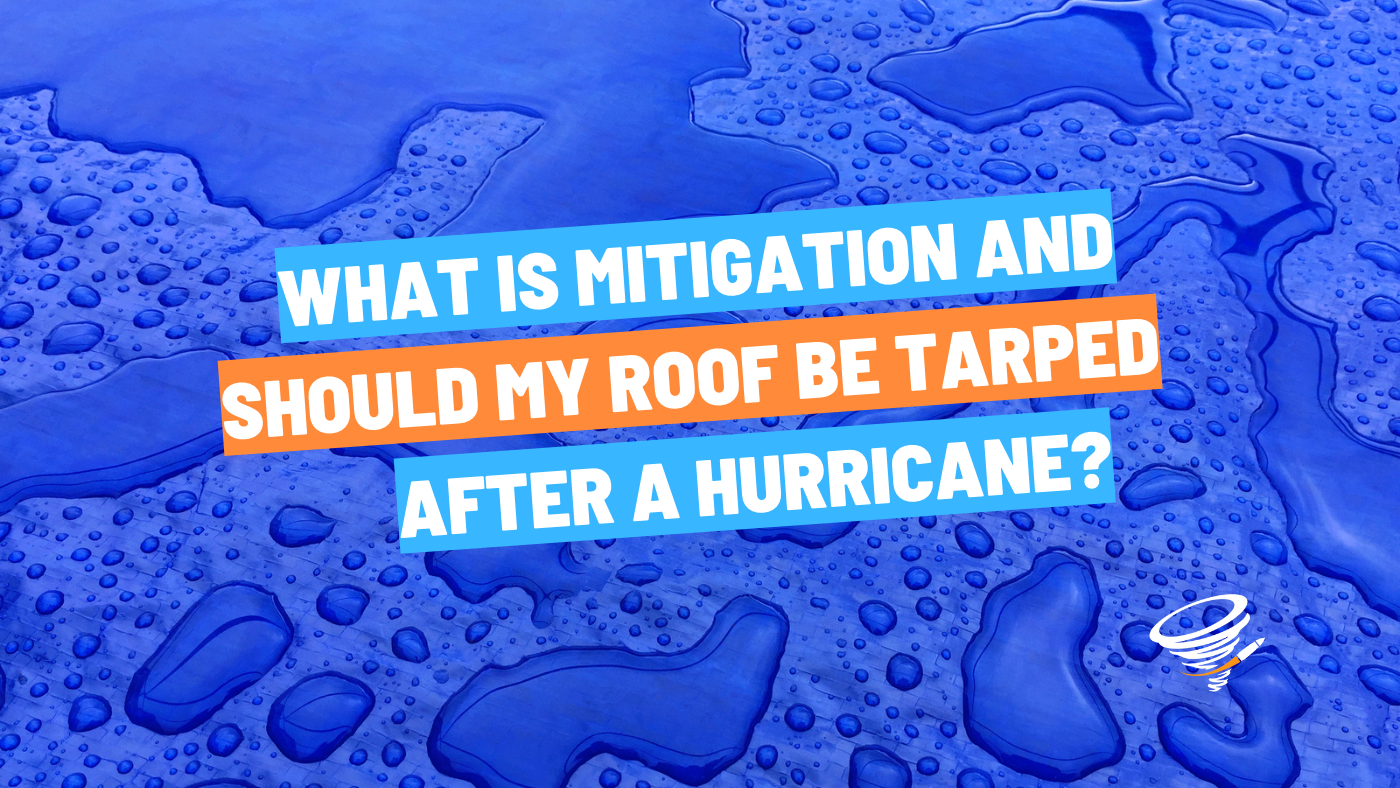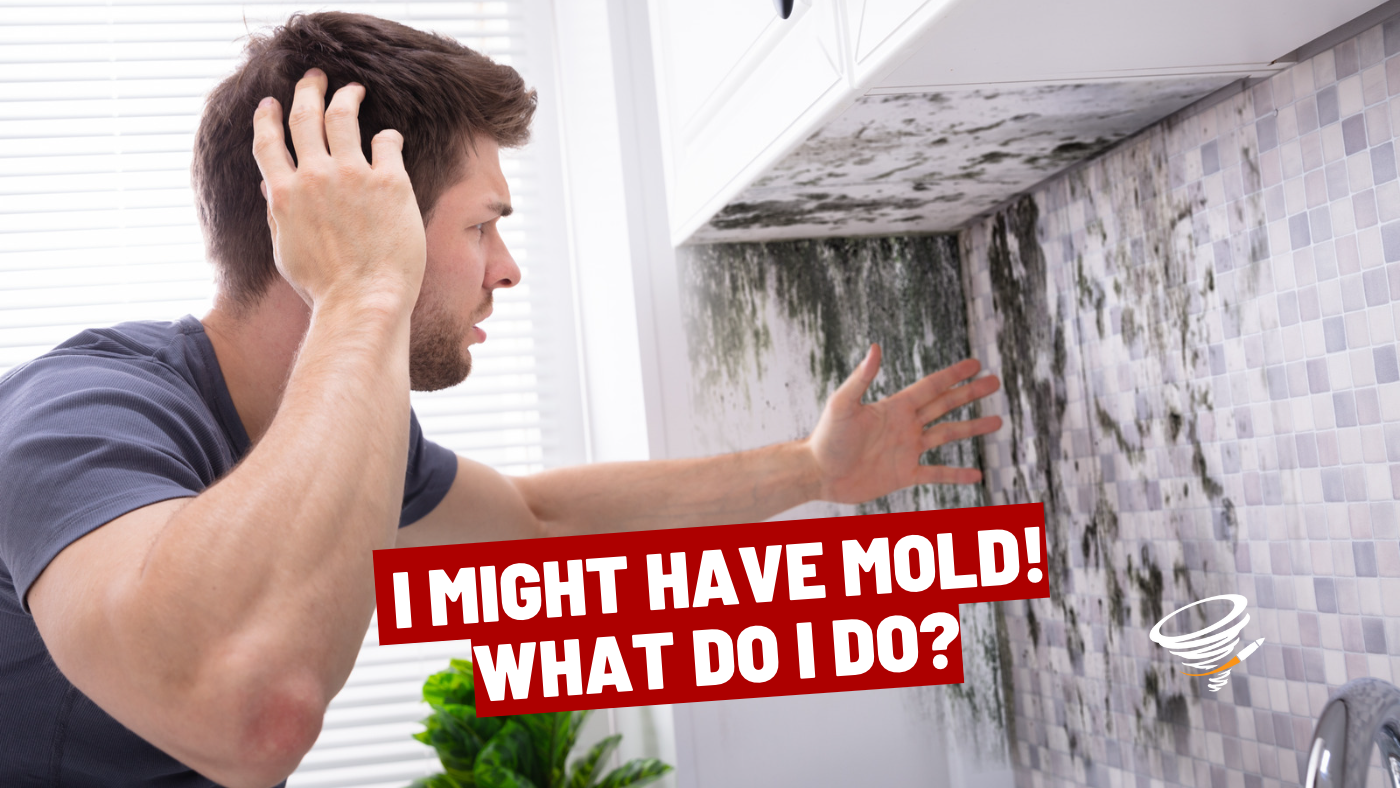After a hurricane, it’s important to tarp your roof and do water mitigation to prevent further damage to your home and property. This is especially important when working with a public adjuster to file an insurance claim and get the maximum payout from your insurance company. Here are some reasons why tarping your roof and doing water mitigation is important:
- Prevent Further Damage: Tarping your roof and doing water mitigation can help prevent further damage to your home and property. If your roof is damaged, it may be vulnerable to leaks and further damage from rain and other weather elements. Water mitigation can help prevent water damage from spreading to other areas of your home, such as the walls, ceilings, and floors.
- Protect Your Property: Tarping your roof and doing water mitigation can help protect your property from further damage. Water damage can cause mold growth, rot, and other issues that can be costly to repair. Tarping your roof and doing water mitigation can help prevent these issues and protect your property.
- Expedite the Insurance Claim Process: Tarping your roof and doing water mitigation can help expedite the insurance claim process. Insurance companies may require you to take steps to prevent further damage after a hurricane, and failure to do so could result in your claim being denied or delayed. Tarping your roof and doing water mitigation shows the insurance company that you’re taking steps to protect your property and prevent further damage.
When working with a public adjuster to file an insurance claim, it’s important to understand your policy limits and exclusions. Your policy will outline what’s covered and what’s excluded from your coverage, as well as any limits on the amount of coverage you have. It’s important to review your policy carefully and understand what’s covered when filing a claim.
Finally, whether or not your drywall needs to be ripped off will depend on the extent of the water damage. If the drywall is saturated and there’s a risk of mold growth, it may need to be removed to prevent further damage and protect your health. Your public adjuster can work with you to determine the extent of the damage and recommend the appropriate steps to take.
MOLD REMEDIATION, IS IT NECESSARY? (READ ARTICLE)
Mold remediation and water mitigation are two related but distinct processes that are often performed together to address issues related to water damage and mold growth.
Water mitigation involves the process of reducing or preventing further water damage to a property, typically caused by flooding, leaks, or other sources of water intrusion. This can include actions such as water extraction, drying and dehumidification, and the removal of damaged materials such as flooring, drywall, and insulation.
Mold remediation, on the other hand, is the process of removing mold from a property and addressing the underlying causes of mold growth. This can involve identifying and fixing sources of moisture, removing mold-contaminated materials, and cleaning and disinfecting surfaces to prevent the spread of mold spores.
In many cases, mold growth is a result of water damage that has not been properly addressed, making it essential to address both water mitigation and mold remediation to fully resolve the issue. It is recommended to hire a professional mold remediation and water mitigation company to ensure that the process is done safely and effectively.
In summary, tarping your roof, doing mold remediation, and doing water mitigation after a hurricane can help prevent further damage to your home and property, expedite the insurance claim process, and protect your property. When working with a public adjuster, it’s important to understand your policy limits and exclusions and take the appropriate steps to protect your property and maximize your insurance payout. If you’re unsure about the extent of the damage or what steps to take, consult with your public adjuster to ensure that your home is protected and your insurance claim is successful.
If there is mold growth in your home or business, you should call Caliber Public Adjusters immediately! We can connect you with a mold remediation company that can help extract the mold, kill it, and treat the area so that the mold has a lesser chance to develop again.
On average, a policyholder makes 747% more money using a Public Adjuster. (Source OPPAGA)
If you opened a claim with your insurance, our team can help you get paid, we have handled all types of claims in the past and we are confident in the fact we can assist you in these troubling times.
Call or Text me anytime at my Personal Cell (786) 818-9642 or send me an email at Armando@CaliberAdjusters.com





